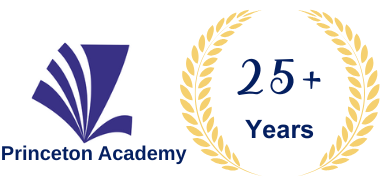panel_start Overview panel_end
Don’t allow defects to drain away your company’s hard earned profits. Quest for zero rejection in every operation and service from factories to offices to call centers is our mission. Over a period of time complacency creeps in every organization. Delivering products with high quality — defined as “meeting specifications at the lowest possible cost†is a top priority for manufacturers and service providers
Zero Defects management is aimed at the reduction of defects through prevention of defect generation. It means ensuring the highest quality standards in meeting customer’ expectations with ultimate aim to reduce the level of defects to zero.
The overall effect of achieving zero defects is the maximization of profitability.
The program through work place exercises helps to gain necessary skill set to optimize the processes leading to zero defects.
panel_start Course Content panel_end
Delivering products with high quality — defined as “meeting specifications at the lowest possible cost†is a top priority for manufacturers and service providers. Seven QC tools help us to meet this goal of exceeding customer expectations and making our products globally acceptable.
Every activity is a process. A process is a series of activities or steps used to transform input(s) into output(s). When these processes are not managed effectively quality gets a beating and customer suffers and if the process is not controlled effectively we lose a customer.
The 7 QC tools help us to constantly improve processes by building in feedback loop in every process. This feedback loop helps us to continuously evaluate and improve the processes.
The training program will help you understand the various QC tools available to systematically analyze the quality issues arising in a process to initiate corrective actions .
The seven Quality control tools are :
1. Check sheets
2. Graphs
3. Histograms
4. Control charts
· R chart
· X chart
· MR chart
· p chart
· np chart
· c chart
· u chart
5. Pareto Charts
6. Cause-and-effect diagrams
7. Scatter diagrams
7 QC tools imbibe a culture of employee involvement and motivation, as they feel more in control of what they are doing; better communication; raised quality and productivity of work; faster decision making processes; and less waste in processes.
The program will help you gain access to Six Sigma methodology in problem solving leading to break-through results in quality improvement leading to improvement in ROI.
Aligning VOB , VOC to VOP
Hidden factory
FTY & RTY
Histogram and Standard Deviation
Process capability Cp
Process capability Index Cpk
Cause and Effect Pareto chart
Scatter chart to establish Y = fX + e
Case studies and Exercises
Helps you convert a workplace into a More Productive, More Dynamic & More Mistake-Free Workplace . Improve quality Reduce manufacturing costs Increase company’s profits
Target Audience
The training is suitable for executives and Senior Operations Managers from Production, Quality, Engineering, Maintenance , Purchase , Warehouse , Stores
panel_start How to Register panel_end
How to Register:
• Fees: Rs. 3,500/- +18% GST per person.
• Please write to register@princetonacademy.co.in /Call -022-67256200
• Mention the name of participant, company, contact details .
• Fees includes course material etc.
Princeton Academy resource https://princetonacademy.in/resources/
COURSE SCHEDULE & FEES
DOWNLOAD COURSE CONTENTS
Please click the button below to download the course content. You'll need to provide your contact information to receive the document.
INCOMPANY/GROUP TRAINING REQUEST
Why Choose Our Incompany Program?
- 🎯 Tailored content specific to your business goals
- 👥 Train entire teams together, saving time and cost
- 📍 Delivered at your location or virtually
- 📅 Flexible scheduling to suit your timelines
- 📈 Increase retention and application of skills
